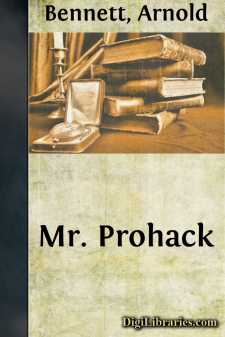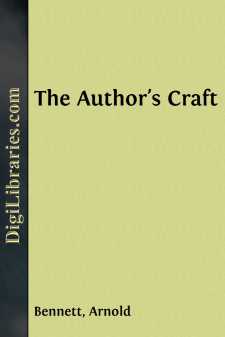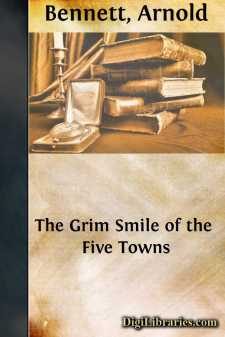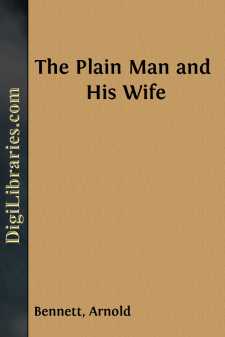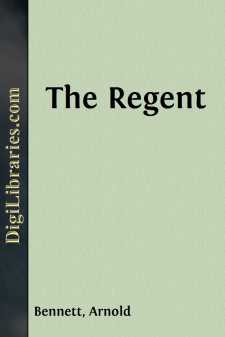Categories
- Antiques & Collectibles 13
- Architecture 36
- Art 48
- Bibles 22
- Biography & Autobiography 813
- Body, Mind & Spirit 142
- Business & Economics 28
- Children's Books 14
- Children's Fiction 11
- Computers 4
- Cooking 94
- Crafts & Hobbies 4
- Drama 346
- Education 46
- Family & Relationships 57
- Fiction 11829
- Games 19
- Gardening 17
- Health & Fitness 34
- History 1377
- House & Home 1
- Humor 147
- Juvenile Fiction 1873
- Juvenile Nonfiction 202
- Language Arts & Disciplines 88
- Law 16
- Literary Collections 686
- Literary Criticism 179
- Mathematics 13
- Medical 41
- Music 40
- Nature 179
- Non-Classifiable 1768
- Performing Arts 7
- Periodicals 1453
- Philosophy 64
- Photography 2
- Poetry 896
- Political Science 203
- Psychology 42
- Reference 154
- Religion 513
- Science 126
- Self-Help 84
- Social Science 81
- Sports & Recreation 34
- Study Aids 3
- Technology & Engineering 59
- Transportation 23
- Travel 463
- True Crime 29
Mr. Prohack
by: Arnold Bennett
Description:
Excerpt
CHAPTER I
I
Arthur Charles Prohack came downstairs at eight thirty, as usual, and found breakfast ready in the empty dining-room. This pleased him, because there was nothing in life he hated more than to be hurried. For him, hell was a place of which the inhabitants always had an eye on the clock and the clock was always further advanced than they had hoped.
The dining-room, simply furnished with reproductions of chaste Chippendale, and chilled to the uncomfortable low temperature that hardy Britons pretend to enjoy, formed part of an unassailably correct house of mid-Victorian style and antiquity; and the house formed part of an unassailably correct square just behind Hyde Park Gardens. (Taxi-drivers, when told the name of the square, had to reflect for a fifth of a second before they could recall its exact situation.)
Mr. Prohack was a fairly tall man, with a big head, big features, and a beard. His characteristic expression denoted benevolence based on an ironic realisation of the humanity of human nature. He was forty-six years of age and looked it. He had been for more than twenty years at the Treasury, in which organism he had now attained a certain importance. He was a Companion of the Bath. He exulted in the fact that the Order of the Bath took precedence of those bumptious Orders, Star of India, St. Michael and St. George, Indian Empire, Royal Victorian and British Empire; but he laughed at his wife for so exulting. If the matter happened to be mentioned he would point out that in the table of precedence Companions of the Bath ranked immediately below Masters in Lunacy.
He was proud of the Treasury's war record. Other departments of State had swollen to amazing dimensions during the war. The Treasury, while its work had been multiplied a hundredfold, had increased its personnel by only a negligible percentage. It was the cheapest of all the departments, the most efficient, and the most powerful. The War Office, the Admiralty, and perhaps one other department presided over by a personality whom the Prime Minister feared, did certainly defy and even ignore the Treasury. But the remaining departments (and especially the "mushroom ministries") might scheme as much as they liked,—they could do nothing until the Treasury had approved their enterprises. Modest Mr. Prohack was among the chief arbiters of destiny for them. He had daily sat in a chair by himself and approved or disapproved according to his conscience and the rules of the Exchequer; and his fiats, in practice, had gone forth as the fiats of the Treasury. Moreover he could not be bullied, for he was full of the sense that the whole constitution and moral force of the British Empire stood waiting to back him. Scarcely known beyond the Treasury, within the Treasury he had acquired a reputation as "the terror of the departments." Several times irritated Ministers or their high subordinates had protested that the Treasury's (Mr. Prohack's) passion for rules, its demands for scientific evidence, and its sceptical disposition were losing the war....


